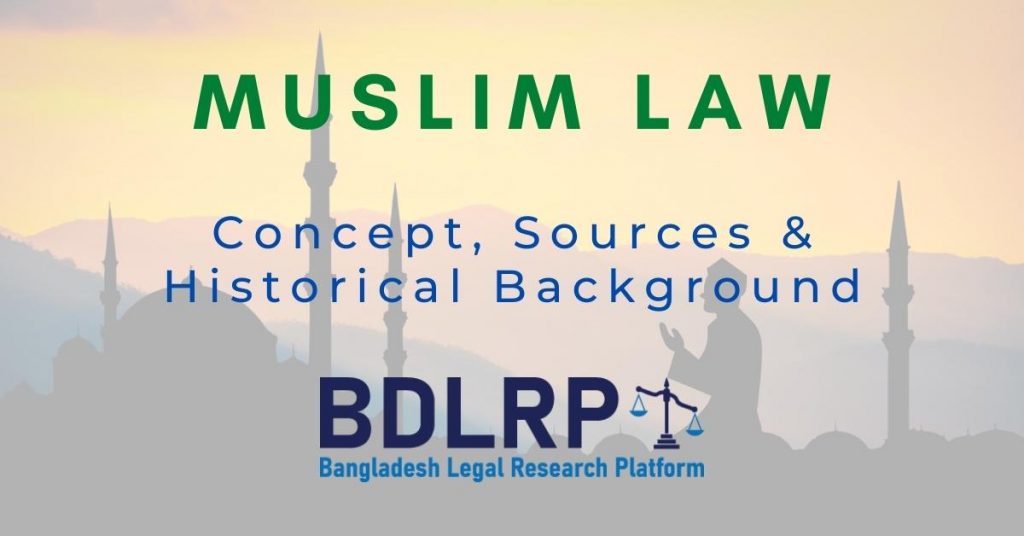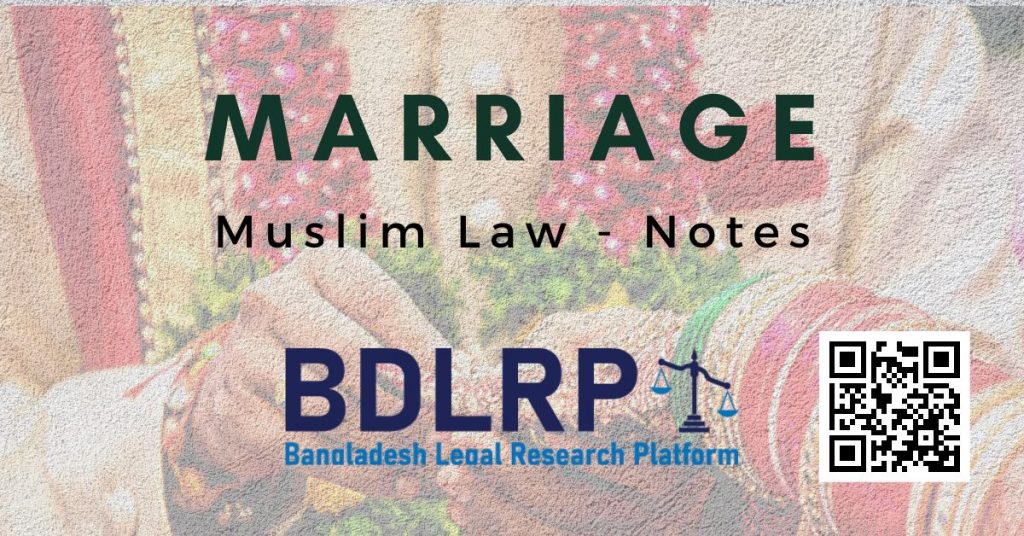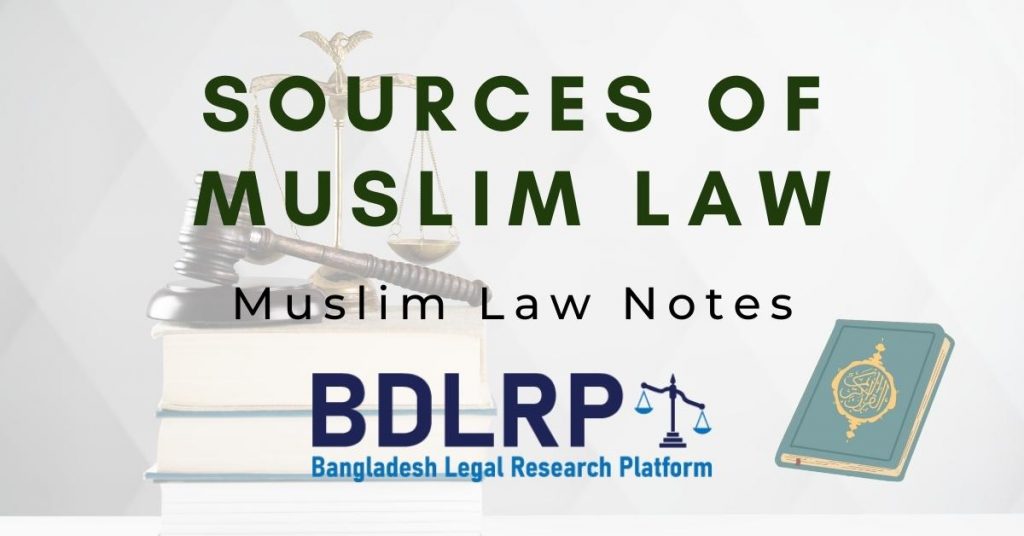Concept of Muslim Law
Muslim law is divine law which is effective from birth and after death also. Allah is the creator of muslim law and Prophet Muhammad (PBH) is a preacher of Muslim law. The main source of Muslim law is quran which descended on prophet Muhammad (PBH) for twenty one years by Allah. Muslim law imposed on muslim. Muslim follows this law for satisfying Allah. Muslim law is the opposed of man-made laws. For Example: In islam, marriage is considered to be a contract but in hindu law, it is a sacrament.
Historical Background of Muslim Law
Historical background of muslim law can be divided into two parts.
1. Pre-Islamic Period
2. Islamic Period
Pre-islamic period was full of darkness. Islamic period can be divided into six periods.
1st period (610-631)AD.– ★ This time, Quran was descended on Prophet Muhammad (PBH). ★ Quran and Sunnah(Practice of Muhammad) was the main source of Muslim law in this time.
2nd period (633-663)AD.– ★ This period started by four caliphs and this period ends at the reign of Muabiah (RA.) ★ Ijma(Consensus of opinion) was emerged in this period.
3rd period(663-754)AD.– ★ Analogy was started in this period. ★ Quazi was appointed for justice in this period. ★ Imam Abu Hanifa, Malik Ibn Anas were born in this period.
4th period(755-955)AD.– ★ Fiqh emerged and achieved maturity in this period. School of thought emerged in this period. ★ Qazi was considered to be a master of fiquh in this period.
5th period(Till 14 century)– ★ Taqlid was emerged in this period. ★ Al Shafei, Al Ghazali were related in this period.
6th period(14th century to still now)- ★ This period is related with Autonomy and Mughals. ★ In this period Islamic law is modified by western law.
Sources Of Muslim Law
The sources of Muslim law can divide into two kinds.
1. Divine (Primary Sources)
2. Non divine(Subsidiary Sources)
1. Divine (Primary Sources) The divine (Primary Sources) sources are Quran And Sunnah.
Quran: Al-Quran is the first and main source of Islamic Law. It was communication from Allah to Prophet Mohammad during 23 years.it has 6666 verses and 114 suras. The quran was revealed gradually. The revelation of the Quran starts with surah Al-Alaq and ending with the verse in surah Al- Mayidah. The rules of laws are mostly connected with Sura Al-Baqara, An-Nisha,Al- Imran, Al-Maiyidah, An Noor, At Talaque, Bani Israil.
Sunnah: Sunnah or Hadith is the second source of Islamic Law. There are same synonymous of Sunnah and Hadith but there are some differences in meaning and use. Sunnah means the practice of Prophet of Muhammad. On the other hand, Sunnah or Hadith means all that is narrated from the Prophet Muhammad (PBH). According to Sunni Schools, there are six authentic books on hadith.
2. Non divine(Subsidiary Sources) The non-divine sources are Ijma, Qiyas, Istihsan, Istislah, Istidlal, Taqlid.
Ijma: Ijma is the third source of Islamic Law. Ijma means unanimous agreement on something. when it is difficult to apply primary sources, then ijma is applied. Ijma may be opinion of the muslim scholars of all ages or consensus of opinion of companion of prophet Muhammad (PBH) etc.
Qiyas: Qiyas is the fourth source of Islamic law. Qiyas means measuring, comparision, equality etc. Analogy or Qiyas is only applied when solution of new case cannot be found in the Al-Quran, the Sunnah and a definite Ijma.
Istihsan: Istihsan means preferring, considering. It is parallel of doctrine of equity of the English law. Istihsan is only used by hanafi lawyers.
Istislah: Istislah means public good. Imam malik introduced with istislah. Under the formula, it is only allowed when it becomes necessary in the interest of general public.
Istidlal: Istidlal means inferring something to another thing. Istidlal allows the jurists to avoid strict analogy where clear precedent is not found.
Taqlid: Taqlid denotes the conformity of one person to the teaching of another.
Author: Md. Taufiq Omar
Department of Law and Land Administration,
Patuakhali Science and Technology University (PSTU).





Comments are closed.